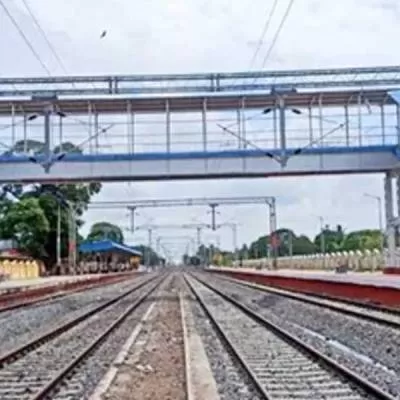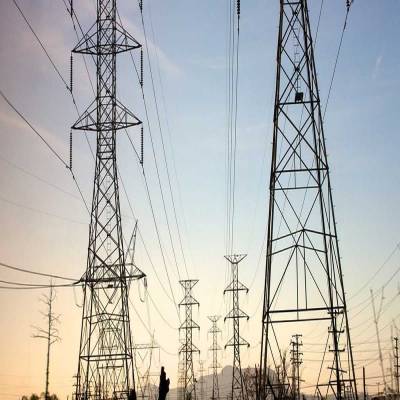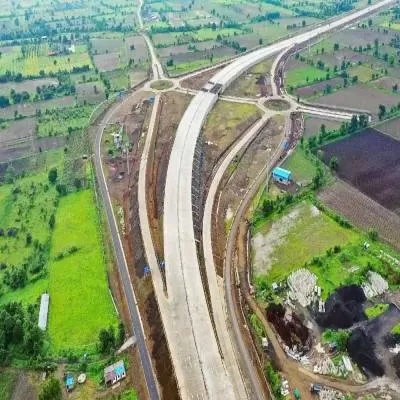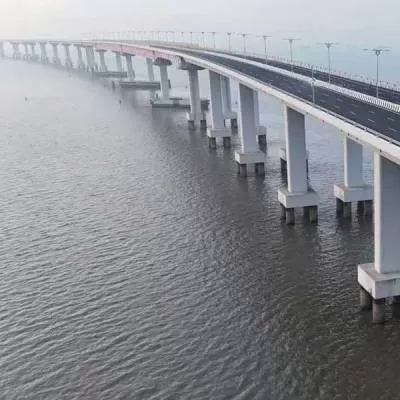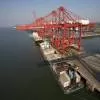- Home
- Infrastructure Transport
- ROADS & HIGHWAYS
- Cabinet approves amendments for PPP projects at Major Ports to usher in more private participation: ICRA
Cabinet approves amendments for PPP projects at Major Ports to usher in more private participation: ICRA
The key features of the revised MCA compared to the earlier version are listed below:
- Royalty: Royalty is to be calculated on per MT/TEU handled basis, which will be indexed to WPI annually as compared to revenue share earlier.
- Faster exit for developers: The developer can divest up to 100 per cent of equity after two years from the Commercial Operation Date (COD), which was not allowed for the entire period of the concession in the existing MCA (minimum 26 per cent to be maintained after three years post COD).
- Improved efficiency and productivity: The concessionaire would be free to deploy higher capacity equipment or technology and carry out measures for higher productivity and improved utilisation and/or to have additional cost savings.
- Broadening definition of ‘change in law’ clause: This clause in the agreement will include the impact of imposition of standards and conditions due to changes in TAMP guidelines, environmental laws and labour laws. Further, the concessionaire will be compensated for any increase or imposition of new taxes and duties, except for direct taxes imposed by Central or state governments.
- Enable refinancing: The new agreement has a provision for refinancing to facilitate availability of low cost long term funds to the Concessionaire.
- Grievance redressal mechanism: The amendments envisage constitution of Society for Affordable Redressal of Disputes – Ports (SAROD-PORTS) as a dispute resolution mechanism. The provisions of SAROD-PORTS for redressal of disputes can be extended to existing concessionaires by introducing the supplementary agreement to be signed between the Concessionaire and the Concessioning Authority.
According to K Ravichandran, Senior Vice President and Group Head, Corporate Ratings, ICRA, “The aforementioned changes in the MCA have been long overdue and will improve the investment climate for the developers and operators. For royalty calculation, by changing to ‘per million tonne of cargo handled’ instead of percentage of gross revenue based on the upfront tariff determined by Tariff Authority for Major Ports (TAMP), the port operator will pay royalty on the actual income and not on notional income.” Earlier, royalty was calculated as a percentage (quoted during bidding) of gross revenue based on ceiling tariff set by TAMP and discounts were not factored in. The change in royalty calculation mechanism is expected to address this issue and also eliminate several disputes related to collection of revenue share on the storage charges.
Adding further, he has said, “A faster exit route will allow the developers to cash out from successful projects or minimise losses by exiting the project. Further, the setting up of a dispute resolution mechanism for new as well as existing projects and the changes in ‘change in law’ provisions would be a positive for the investors as it would reduce the risk of unforeseen events or policy changes. Investors will also benefit from the provision of refinancing, which will allow refinancing of projects with low-cost long-term funds and improve the financial viability. Further, the new MCA allows for modernisation of facilities at the major ports, which support better efficiency and drive down overall costs.”
Ravindchanran believes that the changes address the key concerns that include bringing in more equitable allocation of project risks, providing for unforeseen circumstances and removing ambiguity on parameters. It is believed that the government will gain from the change in terms of higher investments in by private players that will bring in efficiency improvements and better service to the trade.
The Union Cabinet has approved certain amendments to the existing Model Concession Agreement (MCA) for PPP projects at the Major Ports, which will address some of the thorny issues faced by the existing PPP port projects and attract more private investments to achieve capacity targets set under the Sagarmala programme. The cabinet has also appointed a committee under the chairmanship of the finance minister to examine whether the new MCA can be applied to 12 stalled port projects, the total cost of which is estimated to be Rs 20,000 crore. The key features of the revised MCA compared to the earlier version are listed below: Royalty: Royalty is to be calculated on per MT/TEU handled basis, which will be indexed to WPI annually as compared to revenue share earlier. Faster exit for developers: The developer can divest up to 100 per cent of equity after two years from the Commercial Operation Date (COD), which was not allowed for the entire period of the concession in the existing MCA (minimum 26 per cent to be maintained after three years post COD). Improved efficiency and productivity: The concessionaire would be free to deploy higher capacity equipment or technology and carry out measures for higher productivity and improved utilisation and/or to have additional cost savings. Broadening definition of ‘change in law’ clause: This clause in the agreement will include the impact of imposition of standards and conditions due to changes in TAMP guidelines, environmental laws and labour laws. Further, the concessionaire will be compensated for any increase or imposition of new taxes and duties, except for direct taxes imposed by Central or state governments. Enable refinancing: The new agreement has a provision for refinancing to facilitate availability of low cost long term funds to the Concessionaire. Grievance redressal mechanism: The amendments envisage constitution of Society for Affordable Redressal of Disputes – Ports (SAROD-PORTS) as a dispute resolution mechanism. The provisions of SAROD-PORTS for redressal of disputes can be extended to existing concessionaires by introducing the supplementary agreement to be signed between the Concessionaire and the Concessioning Authority. According to K Ravichandran, Senior Vice President and Group Head, Corporate Ratings, ICRA, “The aforementioned changes in the MCA have been long overdue and will improve the investment climate for the developers and operators. For royalty calculation, by changing to ‘per million tonne of cargo handled’ instead of percentage of gross revenue based on the upfront tariff determined by Tariff Authority for Major Ports (TAMP), the port operator will pay royalty on the actual income and not on notional income.” Earlier, royalty was calculated as a percentage (quoted during bidding) of gross revenue based on ceiling tariff set by TAMP and discounts were not factored in. The change in royalty calculation mechanism is expected to address this issue and also eliminate several disputes related to collection of revenue share on the storage charges. Adding further, he has said, “A faster exit route will allow the developers to cash out from successful projects or minimise losses by exiting the project. Further, the setting up of a dispute resolution mechanism for new as well as existing projects and the changes in ‘change in law’ provisions would be a positive for the investors as it would reduce the risk of unforeseen events or policy changes. Investors will also benefit from the provision of refinancing, which will allow refinancing of projects with low-cost long-term funds and improve the financial viability. Further, the new MCA allows for modernisation of facilities at the major ports, which support better efficiency and drive down overall costs.” Ravindchanran believes that the changes address the key concerns that include bringing in more equitable allocation of project risks, providing for unforeseen circumstances and removing ambiguity on parameters. It is believed that the government will gain from the change in terms of higher investments in by private players that will bring in efficiency improvements and better service to the trade.


